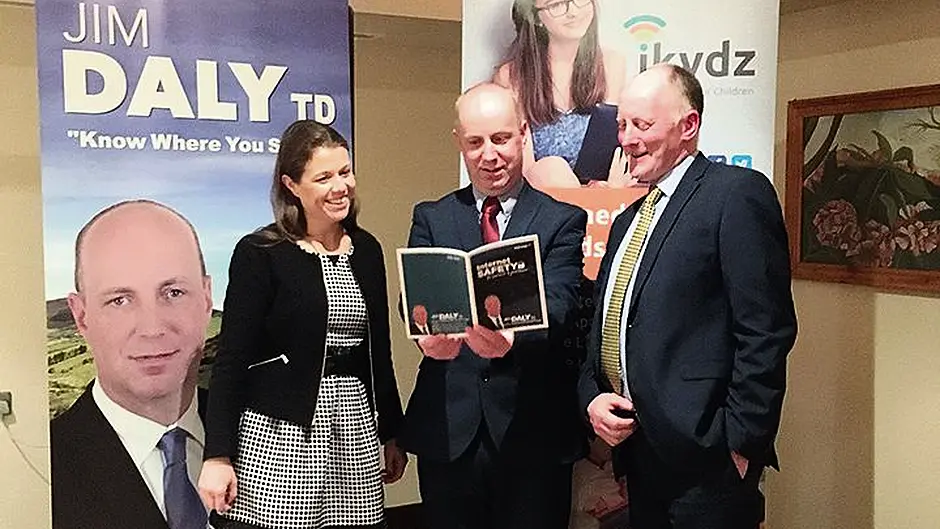As a society, we need to put the phones away, because we are all role models for our children, says the HSE's mental health boss in Cork
As a society, we need to put the phones away, because we are all role models for our children, says the HSE’s mental health boss in Cork
By Siobhán Cronin
SLEEP deprivation is becoming a major issue for young teens around the world – including Ireland – who are allowed to keep their phones in their bedrooms at night.
That was one of the many stark messages from the HSE’s head of mental health services in Cork and Kerry, when she addressed the internet safety meeting in Bantry on Monday night.
Sinéad Glennon said that in 2012, 49% of children had access to the internet in their bedrooms. ‘There is no safe place for children anymore,’ she said. ‘When we were young, we could close the door of our bedrooms on the world. That is no longer the case. The internet follows you everywhere.’
The constant ‘ping, ping’ of notifications all night is keeping many of our children awake. ‘God forbid they should miss a message,’ she said, adding that phones should have no place in our children’s bedrooms.
When it comes to larger devices, access to the internet should be in a public space in the home – like a corner of the kitchen or sitting room, she said. This allows parents to keep a regular eye on the content being watched by their children.
And she also highlighted the links between an increase in online activity and childhood obesity: ‘Our children are spending less time outdoors than prisoners now,’ she said, to sharp intakes of breath from the audience.
Society is now ‘always on’ and there is no ‘downtime’ anymore, she said, and it’s worth bearing in mind that children learn from the adults they see around them. Whether you are in a bus queue, a hospital waiting room, or on a train, everyone is looking down at their devices now, she said, and nobody makes eye contact anymore. ‘We are role models for our children,’ she reminded the audience. ‘Even at break times at work, you will see people on their phones. And all this time online is detrimental people’s mental health.’
As a society, we need to ‘put the phones away’, she said. We have all heard the theory of the ‘snowflake generation’ but, according to Ms Glennon, this theory is borne out by research which shows that children are becoming less resilient.
‘Life is tough, it throws things at us all the time, and younger people are now finding it harder and harder to deal with problems. They need to talk to people and we need to give them the language to express their emotions.’
Obesity is another issue with children, who are more sedentary than ever before, she said, as another speaker pointed out that the average amount of time children spend online now is 3.8 hours a day, although the World Health Organisation recommends just two hours.
The meeting also heard that one in five children have spoken to a stranger online, and yet three out of four parents have never spoken to their children about online security.
Because of the particular issue of online bullying, Ms Glennon recommended a number of websites and services that are a great resource for Irish parents. The Tusla website has a section on Tips for Your Child on the Internet. There is also the Jigsaw service which opened in Cork city in June and offers counselling and other services for children with moderate mental health issues.
They also have experts willing to talk in schools about internet and mental health issues, she said, and are hoping to extend their service throughout Cork county next year.
Minister Daly also recently launched the Connecting for Life initiative which comprises 72 actions to help us all improve our mental health, and the Lighting the Way booklet is a great resource for individuals and families touched by suicide or suicidal ideation.
SafeTALK specialises in training to spot those at risk of suicide and has so far trained 10,000 people in Cork. It is aimed at groups or organisations like school/parents groups, GAA clubs, etc and the trainees must be over 18. Any group of 15 people or more can apply for the free training, she said.
She said it was important for us to recognise that the internet can be a very positive thing for us all, but as parents we also need to inform ourselves about it.








